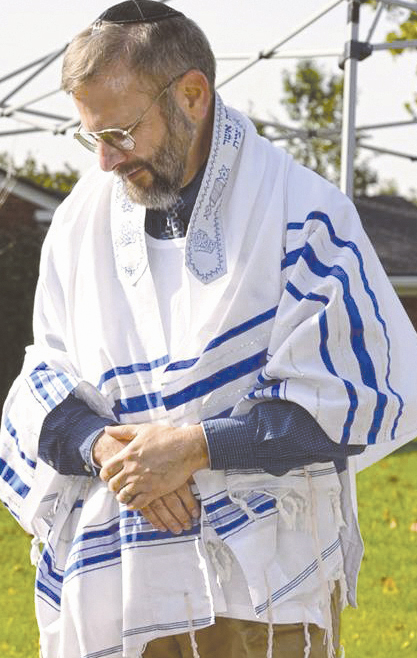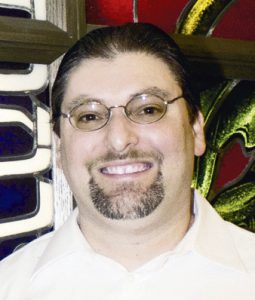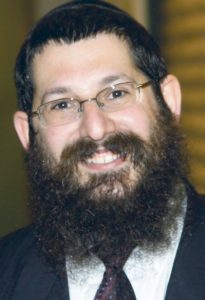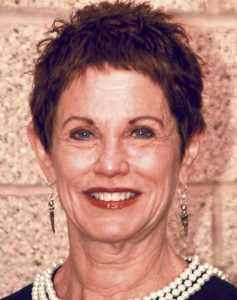‘Messianic’ synagogue reconfigures as ‘yeshiva’

Area rabbis: ‘Messianic Judaism’ is Christianity with Jewish overlays, not normative Judaism
By Marshall Weiss, The Dayton Jewish Observer
On Sept. 28, Ahavat Torah Yeshiva – Dayton, OH launched its community Facebook page. In an early post, it describes itself as “a place for Torah learning and drawing close to HaShem,” using a Hebrew term for God.
Another post, with a graphic of a traditional-looking rabbi sounding a shofar, announces the yeshiva’s classes are held on Shabbat afternoons at 1380 Spaulding Rd. “Rabbi Tziyon is currently teaching about the Shlosh’esrei (13) Midot (attributes) of HaShem’s Hesed Rachum (loving kindness and mercy),” the post concludes.
Subsequent posts link to videos of the popular Jewish a cappella group The Maccabeats, educational videos about the Jewish holiday of Sukkot, and Barbra Streisand singing Avinu Malkeinu (Our Father Our King) in Israel.
What the page does not indicate anywhere is that Ahavat Torah Yeshiva is a ‘‘Messianic” endeavor.
Followers of “Messianic Judaism” — actually an evangelical Christian subgroup — believe that Jesus is the messiah. Some Messianic adherents have Jewish lineage, others are Christians who seek to connect with what they perceive as the Jewish roots of Christianity.
But rabbis across Dayton’s Jewish movements point out that Messianic Judaism is not Jewish.
“There’s a widespread consensus that those who have accepted Jesus as being a divinity are no longer part of normative Judaism, and that those individuals would be considered — at that time — to have separated themselves from the Jewish community and the Jewish people,” says Rabbi Joshua Ginsberg of Beth Abraham Synagogue, Dayton’s Conservative congregation.

“While they may technically claim a Jewish identity according to Jewish law,” Ginsberg says, “at best they would be a Jew in poor standing and would not be allowed any of the privileges or responsibilities that come with being part of the Jewish people.”
Rabbi Judy Chessin of Temple Beth Or, a Reform congregation in Washington Township, says Judaism adheres to the belief that there has not been a messiah.
“The parting of the ways between the early Jewish community and the birth of Christianity was the separation of the belief that the messiah had come,” Chessin says. “Therefore, while people could actually have Jewish heritage in them and choose to mark their faith in a Jewish style, the belief of Jesus as the messiah makes a separation between us and them.”
Rabbi Nochum Mangel of Chabad — Dayton’s Orthodox entity — says Messianic Judaism is an oxymoron, like “a vegetarian for meat.”
“These movements deliberately target unsuspecting Jews, and they do it by misleading, confusing the issues,” Mangel says. “They use language that seems to be Jewish. And the antidote is a strong Jewish education, where Jews understand what are the fundamental beliefs of Judaism, specifically Maimonides’ categories of what is within the bounds of Judaism and what is not.”
‘Changing our name and focus’
Ahavat Torah Yeshiva meets at East Dayton Baptist Church, the address listed at its Facebook page. The leader of the “yeshiva” is Thurlow Adams, who refers to himself as “Rabbi Tziyon.”
Adams was the leader of Beth Simchat Yeshua Messianic Jewish Synagogue, based at East Dayton Baptist Church until it announced at Beth Simchat Yeshua’s Facebook page on Sept. 5 that it was “changing our name and focus” to become a “yeshiva.”
“Rabbi Tziyon is the Rosh Yeshiva,” Beth Simchat Yeshua’s Sept. 5 post indicated, using the term for the head of yeshiva. “Talmidim (students) will have worship on Shabbat from time to time at our location…but we are no longer technically a congregation. There isn’t any legitimate Messianic synagogue in Dayton, Ohio now.”
Another area Messianic synagogue, Sh’ma Yisrael, appears to have been active, though based in member’s homes, until last year.
Shalom Judaica Messianic gift and bookstore, located in Brookville, continues to invite people through its website “to come and study the Scriptures with us, either through the podcast, or in person.”
Despite several attempts, Adams declined to be interviewed by The Observer. In a 2008 Observer article, Adams, a mechanical drafter by trade, said he was a Mennonite pastor with ordination as a Messianic rabbi through the “Federation of Jewish Congregations.”
At the time, he said that of the six to 10 people who attended his weekly Shabbat service, most were “from a non-Jewish background who are believers in Yeshua, believers in Jesus, and they just have felt and believed there was something missing in their not being connected to the continuity of Judaism.”
‘Cultural appropriation’
“Anyone should be able to express their religiosity in any way they want,” Ginsberg says. But he adds that Messianic Judaism “attempts to create a climate in which they’re saying this is normative Jewish practice.” One of Ginsberg’s main concerns about Messianic Judaism, he says, is that it adopts and interprets Jewish rituals and customs “in ways that have no historical basis in Jewish life. In that way, it’s a cultural appropriation and religious appropriation.”
Ginsberg gives the example of Messianics claiming the three matzahs used at the Passover Seder represent the Holy Trinity.
“This wouldn’t have been anywhere understood that way, in any period of Judaism outside of whenever that interpretation was adapted by some in Christianity much later,” he says.
“A more interesting example would be the modern matzah that we buy in our supermarket, developed in the 19th century with its technology. And many have interpreted the brown lines that we find in the (industrial) baking process as the stripes of Jesus.”

For Christians who follow Messianic Judaism, Mangel offers a suggestion: “If they really want to pursue a relationship with God as expressed in the Torah, that is the Seven Noahide Laws. Judaism does have a message for all of humanity. You don’t have to imitate (Judaism), you can just practice as God wants you to practice.”
According to the Talmud, the Seven Noahide Laws comprise the moral code given by God for “the children of Noah,” all of humanity.
“Jewish law believes that Christianity for a non-Jew is not idolatry,” Mangel explains. “Christianity for a Jew is idolatry. Why? Because of trinity. We have to believe in unity, but if a non-Jew believes that God has partners, that is still acceptable under the Seven Noahide Laws.
“But the point is, do (non-Jews) have to keep kosher, have to keep Shabbos? That’s not part of the Seven Noahide Laws. There is space within Judaism for the rest of the world — without tampering with Judaism.”
‘We welcome everybody’
Beginning with the holiday of Shavuot in late May, Chessin said she became aware of Messianic Jews starting to show up at Temple Beth Or’s services.

“They have lost a place of worship that has meaning for them, and I think they are searching,” Chessin says. “We welcome everybody to be a part, to see and celebrate with us.”
The Dayton area’s synagogues, temples, and Chabad welcome anyone to their services and programs, so long as no one attempts to proselytize. Local rabbis can’t recall anyone attempting to proselytize in their houses of worship.
“People have been lovely and have not hidden where they’ve come from,” Chessin says of Messianic visitors. “We had people at our High Holy Days, we had people at Sukkot — maybe 10 people — so obviously this community is looking for some place to celebrate what feels like home to them.”
So far, Chessin says, Messianics haven’t asked to become members of the temple.
“It really hasn’t been on my radar,” she adds. “There was a time, 20 years ago, when that was an issue and concerned us. Now we have different fish to fry. Our church alliances are shifting. The evangelicals are supporting Israel, and many of the liberal movements are not.
“This is my personal belief — and not all of my colleagues agree — that those who align with Israel and Jewish causes, if they want to be friends, I want to be friends.”
To read the complete November 2017 Dayton Jewish Observer, click here.

